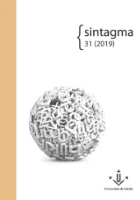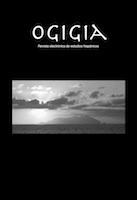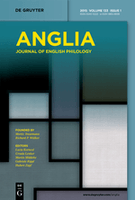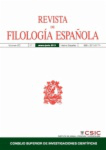
RILCE-Revista de Filologia Hispanica
metrics 2024
Exploring the Depths of Linguistic and Literary Studies
Introduction
RILCE-Revista de Filologia Hispanica is a distinguished academic journal published by the Universidad de Navarra, serving as a pivotal platform for scholarship in the field of Hispanic Philology. Established in 2008 and ongoing through 2024, RILCE stands out in the academic community with a robust reputation reflected in its 2023 ranking; it holds Q2 status in Linguistics and Language and Q1 in Literature and Literary Theory. The journal is indexed in Scopus, where it ranks 165th out of 1106 in Literature and Literary Theory, showcasing its significant impact with an 84th percentile ranking. Located in Pamplona, Spain, RILCE aims to foster critical dialogues and disseminate innovative research that advances the understanding of linguistic and literary studies, making it an essential resource for researchers, professionals, and students alike. Although specific open access options may be limited, RILCE remains committed to enriching the academic dialogue within its disciplines.
Metrics 2024
 0.17
0.17 0.10
0.10 0.20
0.20 12
12Metrics History
Rank 2024
Scopus
IF (Web Of Science)
JCI (Web Of Science)
Quartile History
Similar Journals

Anales de Filologia Francesa
Connecting Researchers Through Open Access KnowledgeAnales de Filologia Francesa is a prominent academic journal dedicated to the fields of French philology, linguistics, and literature, published by UNIV MURCIA. Since its transition to open access in 1985, this journal has enabled a wider dissemination of knowledge, fostering scholarly communication among researchers, professionals, and students alike. Based in Spain, Anales de Filologia Francesa plays a pivotal role in addressing current issues and advancements within its scope, underscored by its notable rankings within the Scopus database, where it places in the second and third quartiles across various disciplines related to literature and linguistics. With a commitment to publishing high-quality research, this journal is essential for those looking to engage with cutting-edge studies in French literary theory, language use, and educational practice.

Italica Belgradensia
Advancing Interdisciplinary Dialogue in Cultural Studies.Italica Belgradensia is a distinguished academic journal published by the University of Belgrade, Faculty of Philology, dedicated to advancing research in the fields of linguistics, literature, and cultural studies. With an ISSN of 0353-4766 and an E-ISSN of 2812-877X, this journal serves as a critical platform for scholars, professionals, and students to explore contemporary issues and trends in the philological disciplines. Although it currently does not offer open access, Italica Belgradensia maintains a rigorous peer-review process, ensuring high-quality and impactful scholarship. The journal is committed to fostering interdisciplinary dialogue and encourages submissions that reflect innovative methodologies and theoretical approaches. With its strategic location in Belgrade, the journal aims to bridge Eastern and Western academic traditions, enriching the global discourse in philology.

Sintagma
Bridging Research and Real-World Linguistics.Sintagma is a prominent academic journal dedicated to advancing the field of Linguistics and Language, published by the Universitat de Lleida in Spain. With an ISSN of 0214-9141 and an E-ISSN of 2013-6455, this journal has established itself as an open-access platform since 1989, thereby ensuring wide accessibility and dissemination of research. The journal's commitment to quality is reflected in its ranking within the Q4 quartile of Linguistics and Language in 2021 and a similar standing in Social Sciences and Arts and Humanities, which underscores its emerging importance in these fields despite recent challenges. Covering topics that span theoretical inquiries to applied linguistic studies, Sintagma invites researchers, professionals, and students to contribute to and engage with its evolving landscape from its unique academic perspective. With the convergence of research years from 2011 to 2018 and upcoming issues through 2024, the journal remains poised to provide insightful content that addresses the linguistic dimensions of contemporary society.

Studia z Filologii Polskiej i Slowianskiej
Illuminating the Nuances of Slavic LanguagesStudia z Filologii Polskiej i Slowianskiej is a prominent journal published by the Polish Academy of Sciences, Institute of Slavic Studies, focusing on the rich and diverse field of linguistics and language studies, particularly within the Slavic context. With the ISSN 0081-7090 and E-ISSN 2392-2435, this open-access journal has been a valuable resource for researchers, professionals, and students since its transition to an open-access model in 2014. It features rigorous peer-reviewed articles that contribute to the understanding of linguistic phenomena and cultural narratives across Slavic languages. Recognized within the Q3 quartile of linguistics and language in 2023, it ranks at the intersection of arts, humanities, and social sciences, providing insights that echo through disciplines such as sociolinguistics, psycholinguistics, and philology. In its ongoing publication trajectory from 2011 to 2023, Studia z Filologii Polskiej i Slowianskiej continues to foster academic discourse and collaboration, positioning itself as a key player in the global linguistic community.

Academic Journal of Modern Philology
Advancing the Frontiers of Philological InquiryWelcome to the Academic Journal of Modern Philology, a premier platform dedicated to advancing the field of philology and linguistics. Published by the esteemed Committee Philology Polish Academy of Sciences, Wroclaw Branch, this open-access journal has been committed to disseminating high-quality research since 2014, ensuring widespread access and engagement within the scholarly community. With an ISSN of 2299-7164 and an E-ISSN of 2353-3218, the journal invites contributions that push the boundaries of contemporary philological inquiry, bridging traditional scholarship with modern linguistic challenges. Situated in Poland's vibrant academic milieu, it aims to foster interdisciplinary dialogue while highlighting the importance of philology in understanding cultural and linguistic diversity. Researchers, professionals, and students alike will find a wealth of insightful articles that contribute to the evolving landscape of modern language studies.

Ogigia-Revista Electronica de Estudios Hispanicos
Advancing Knowledge in Hispanic StudiesOgigia-Revista Electronica de Estudios Hispanicos is a distinguished academic journal published by EDICIONES UNIV VALLADOLID in Spain, focusing on the rich field of Hispanic studies including literature, linguistics, and education. Since it became an Open Access journal in 2013, it has provided a platform for scholars and practitioners to disseminate their research widely, fostering critical engagement and dialogue within the global academic community. As of 2023, the journal holds various category quartiles, reflecting its impact in relevant disciplines—ranked in Q4 in Education, Q3 in Linguistics and Language, and Q2 in Literature and Literary Theory. In the Scopus metrics, it occupies the 54th percentile in Literature and Literary Theory, underscoring its significant contribution to the field. Its core objective is to explore themes pertinent to Hispanic culture and language, providing an essential resource for researchers, educators, and students engaged with the intricacies of Spanish studies.

ANGLIA-ZEITSCHRIFT FUR ENGLISCHE PHILOLOGIE
Exploring the Depths of English PhilologyANGLIA-ZEITSCHRIFT FUR ENGLISCHE PHILOLOGIE, published by WALTER DE GRUYTER GMBH, stands as a significant periodical in the fields of Linguistics and Literary Theory. With a rich publication history dating back to 1878 and ongoing contributions until 2024, this esteemed journal serves as a vital resource for researchers, professionals, and students interested in the evolution of the English language and literature. Although it does not currently offer open access, its rigorous peer-reviewed articles have secured a respectable standing, ranking Q3 in Linguistics and Language and Q2 in Literature and Literary Theory as of 2023. The journal, located in Berlin, Germany, continues to drive academic discourse and foster scholarly engagement in the intricacies of English philology, making it an essential platform for the latest research and developments in the field.

Nueva Revista Filologia Hispanica
Fostering Insightful Dialogues in LinguisticsNueva Revista Filologia Hispánica, published by COLEGIO MEXICO, A C, DEPT PUBLICACIONES, has been a pivotal resource in the field of Hispanic philology since its establishment in 1966, transitioning to an open-access model that enhances the accessibility of scholarly works in the area. With an ISSN of 0185-0121 and an E-ISSN of 2448-6558, the journal is housed in Mexico City and aims to publish innovative research that contributes to the understanding of the linguistic and cultural dynamics of the Spanish language. It consistently ranks in the Q3 category of Linguistics and Language for 2023, reflecting its commitment to academic excellence as demonstrated by its Scopus ranking in both Arts and Humanities and Social Sciences. With converged years from 2011 to 2024, the journal encourages contributions that inspire further discourse among researchers, professionals, and students, thus solidifying its importance as a scholarly platform in the linguistics landscape.

REVISTA DE LITERATURA
Nurturing critical thought in the world of literature.REVISTA DE LITERATURA, published by the Consejo Superior de Investigaciones Científicas (CSIC) in Spain, stands as a beacon of scholarly excellence in the field of Literature and Literary Theory. With an impressive Q1 ranking in its category for 2023, the journal has established a reputable position within the academic community, reflected in its Scopus rank of #427 out of 1106, placing it in the top 61st percentile. Operating under an Open Access model since 2001, it ensures that cutting-edge research on literary texts, theories, and critical practices is freely accessible to all, fostering scholarly dialogue and enhancing the global discourse on literature. The journal’s continuous commitment to advancing literary scholarship from 1996 to 2024 highlights its role in addressing contemporary literary challenges while celebrating diverse voices and ideas. Researchers, professionals, and students alike are encouraged to engage with this vital resource, which not only showcases innovative research but also contributes significantly to the richness of literary studies.

REVISTA DE FILOLOGIA ESPANOLA
Connecting Scholars Through Open Access ResearchREVISTA DE FILOLOGIA ESPANOLA is a distinguished academic journal dedicated to the fields of linguistics and literature, published by the CONSEJO SUPERIOR INVESTIGACIONES CIENTIFICAS (CSIC) since 1954, and has been an Open Access journal since its inception. Situated in Madrid, Spain, this journal has emerged as a crucial platform for the dissemination of scholarly research, with notable rankings including Q2 in Linguistics and Language and Q1 in Literature and Literary Theory as of 2023. The journal's commitment to fostering academic dialogue is reflected in its impressive Scopus rankings, including a 79th percentile in the Arts and Humanities for Literature and Literary Theory. Covering a wide range of topics from linguistic theory to literary critique, REVISTA DE FILOLOGIA ESPANOLA is essential reading for researchers, professionals, and students alike, providing valuable insights and cutting-edge research in the ever-evolving landscape of Spanish philology.